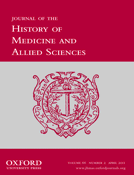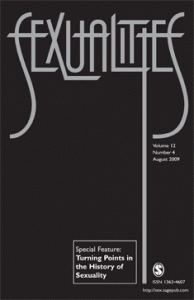Emploi – History of medicine Position at Johns Hopkins University
Historian of 20th Century US Medicine
The Institute of the History of Medicine at Johns Hopkins University invites applications for a tenure track position in the history of 20th century US medicine. Applicants with interests in the history of clinical practice, history of disease, public health, race, and gender are particularly encouraged to apply, as are MD/PhDs. The Institute of the History of Medicine is part of the School of Medicine. An ability to interact effectively, not only with undergraduates and graduate students in History of Medicine, but also with medical students and faculty, is desirable. The successful applicant will have a strong research
portfolio and teaching experience.
Founded in 1929, the Institute of the History of Medicine is dedicated to promoting scholarship on the history of medicine, disease, and the health sciences, and their relation to society, and to fostering a lively and collegial intellectual community. In addition, the Institute seeks to bring historical perspectives to bear on contemporary health issues. Faculty members teach graduate and undergraduate courses in the Schools of Medicine, Arts and Sciences, and Public Health. Together with the Department of the History of Science and Technology, located in the School of Arts and Science, the Institute runs a Ph.D. program in the History of Science, Medicine and Technology. The Institute possesses an extensive collection of primary and secondary sources on the history of medicine. The collection is a valuable resource for department faculty and students, and attracts visiting scholars from around the world.
Applications should include statements of the applicant’s research and teaching interests, a CV, and the names of three references. All application materials should be sent to Randall M. Packard, Director, Institute of the History of Medicine, Welch Medical Library, Johns Hopkins School of Medicine, 1900 East Monument St, Baltimore, Maryland, 21205. Applications may be sent electronically to rpackar2@jhmi.edu or by fax to Dr. Packard at 410-502-7592. Review of materials will begin September 15, 2011, for an appointment beginning July 1, 2012. John Hopkins University is an EEO/AA employer.


